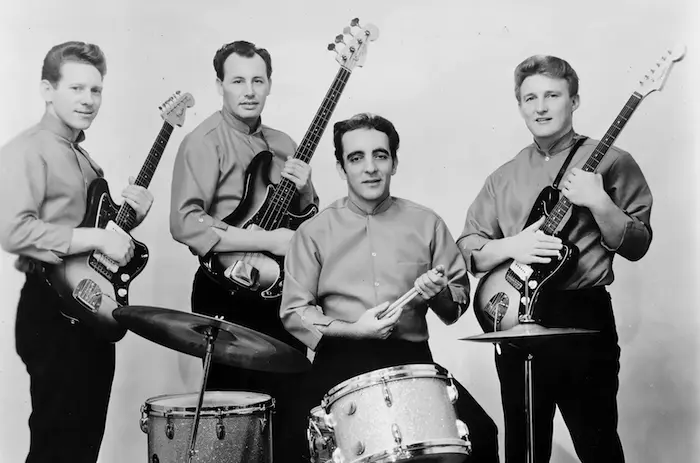Instrumental rock music is a dynamic and expressive genre that has captivated audiences since its emergence in the mid-20th century. This genre focuses solely on musical instrumentation, excluding vocal tracks, to create powerful and emotive experiences. Known for its diversity and ability to cross boundaries, instrumental rock spans a wide array of subgenres, including surf rock, progressive rock, and post-rock. Its emphasis on melody, technical skill, and atmospheric composition has made it a significant part of rock music’s evolution. This article delves into the origins, characteristics, evolution, notable artists, and cultural impact of instrumental rock music.
Understanding Instrumental Rock Music
Definition and Core Elements
Instrumental rock music is a subgenre of rock that relies solely on instruments to communicate emotion, tell stories, and create musical landscapes. Unlike vocal-based rock, it places the spotlight on melodies crafted by instruments such as guitars, keyboards, and drums. The lack of vocals allows musicians to experiment with complex arrangements, dynamic shifts, and intricate solos.
Key characteristics
Prominent Guitar Work: Many instrumental rock tracks feature virtuosic guitar solos or riffs.
Rhythmic Depth: Drums and basslines often add texture and drive.
Harmonic Experimentation: Keyboard and synthesizer usage enhances the genre’s versatility.
Historical Roots
The roots of instrumental rock can be traced back to the 1950s and 1960s, when artists such as Link Wray and The Ventures gained popularity. These pioneers emphasized melody and rhythm over vocals, paving the way for future experimentation.
Evolution of Instrumental Rock Music
The 1950s: Birth of the Genre
In the late 1950s, instrumental rock emerged as a distinct style. Guitarist Link Wray’s groundbreaking track “Rumble” (1958) became an anthem of raw power and innovation. The Ventures followed with their clean, melodic approach, exemplified by hits like “Walk Don’t Run” (1960).
The 1960s: Surf Rock Explosion
Surf rock, a subgenre of instrumental rock, rose to prominence in the early 1960s. Bands like The Surfaris and Dick Dale & His Del-Tones used reverb-heavy guitars to evoke the feeling of ocean waves. Tracks such as “Misirlou” and “Wipe Out” became iconic.
The 1970s: Progressive Rock Influence
The 1970s witnessed instrumental rock’s expansion through progressive rock bands like Pink Floyd, Yes, and King Crimson. These artists incorporated complex time signatures, orchestral elements, and synthesizers into their music. Instrumentals such as Pink Floyd’s “Any Colour You Like” exemplified the era’s experimental spirit.
The 1980s: Guitar Virtuosos Dominate
The 1980s ushered in an era of guitar virtuosity, with artists like Joe Satriani, Steve Vai, and Yngwie Malmsteen pushing technical boundaries. Albums such as Surfing with the Alien (Satriani) and Passion and Warfare (Vai) showcased intricate guitar work and elevated instrumental rock to new heights.
The 1990s: Post-Rock Emerges
In the 1990s, post-rock became a defining movement in instrumental rock. Bands like Mogwai, Explosions in the Sky, and Godspeed You! Black Emperor created expansive, atmospheric compositions. Their music relied on textures and dynamics rather than traditional song structures.
The 2000s and Beyond: Genre Fusion
Instrumental rock in the 21st century continues to evolve, blending with genres such as electronic, metal, and jazz. Artists like Plini, Polyphia, and Animals as Leaders represent a new wave of instrumentalists who incorporate cutting-edge techniques and production.
Notable Artists and Bands
The Ventures
The Ventures are often regarded as one of the most influential instrumental rock bands. Their clean guitar tones and catchy melodies set a standard for the genre.
Joe Satriani
Known for his technical mastery, Joe Satriani brought instrumental rock to mainstream audiences. His album Surfing with the Alien remains a landmark in the genre.
Explosions in the Sky
This post-rock band is renowned for their emotionally charged compositions. Their music often features soaring guitar lines and cinematic arrangements.
Steve Vai
Steve Vai is celebrated for his virtuosic guitar skills and innovative approach to instrumental composition. His work has inspired countless musicians worldwide.
Mogwai
Mogwai’s atmospheric and emotive style has made them a staple in the post-rock scene. Their use of dynamics and texture is unparalleled.
Cultural Impact of Instrumental Rock Music
Film and Television
Instrumental rock has had a profound influence on film and television soundtracks. Iconic tracks such as “Misirlou” by Dick Dale gained renewed fame through movies like Pulp Fiction. Post-rock bands like Explosions in the Sky have also contributed to soundtracks, enhancing emotional storytelling.
Live Performances
Instrumental rock thrives in live settings, where musicians showcase their technical abilities and engage audiences through extended improvisation.
Global Reach
The genre’s universal appeal lies in its ability to transcend language barriers. Instrumental rock is celebrated worldwide, influencing a diverse range of musicians and listeners.
Why Instrumental Rock Music Endures
Creative Freedom
Without the constraints of lyrics, instrumental rock offers artists a canvas for unlimited creativity. Musicians can explore unconventional structures and tonalities.
Emotional Resonance
The absence of words allows listeners to interpret the music in personal and meaningful ways. This emotional flexibility contributes to its enduring appeal.
Versatility
Instrumental rock adapts seamlessly to different contexts, from intimate listening to high-energy performances.
See Also: Top 10 of Rolling Stones’ Rock Classics: You Can’t Miss!
Conclusion
Instrumental rock music stands as a testament to the power of melody, rhythm, and creativity. Its rich history, diverse subgenres, and ability to evoke deep emotion have secured its place in the world of music. From its surf rock roots to the experimental sounds of post-rock, instrumental rock continues to inspire both musicians and fans. As the genre evolves, it remains a source of artistic innovation and a celebration of the limitless possibilities of music.
Related Topics
How Corruption and Greed Led to the Downfall of Rock Music?

